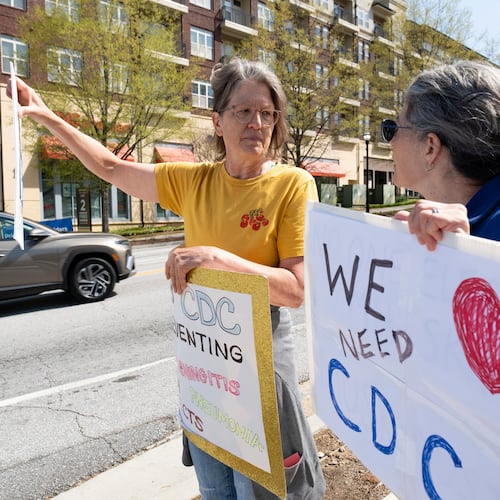Atlanta Mayor Keisha Lance Bottoms on Monday introduced reforms to the way the city handles open records requests, including the creation of a “transparency officer” to ensure compliance with state sunshine laws.
The legislation from Bottoms’ office follows a tumultuous two months for the city, in which Bottoms has had to grapple with the fallout of alleged open records abuses under her predecessor, Kasim Reed, and would fulfill a pledge to make her administration more transparent if adopted.
“The City’s full compliance with the requirements of the Georgia Open Records Act is a vital and essential component of creating and maintaining public trust and enhancing the City’s effectiveness,” the ordinance states.
The legislation was referred without discussion Monday to the City Council’s Finance Executive Committee.
The GBI opened a criminal investigation of open records practices at City Hall in March, and lawyers for The Atlanta Journal-Constitution and Channel 2 Action News filed a formal complaint the next month with state Attorney General Chris Carr. The complaint alleged 10 examples of open records violations and a "culture of political interference" with records requests.
The complaint to the AG’s office seeks mediation to create enforcement measures to ensure compliance with the law and the appointment of an independent public records officer who would be free from political meddling.
Bottoms’ proposed transparency officer echoes the request by the lawyers for the AJC and Channel 2.
The transparency officer would have a staff and be appointed by the mayor upon approval by council for a five-year term. A two-thirds majority of council would be required to remove the officer.
The transparency officer would oversee and enforce compliance with the Georgia Open Records Act, investigate allegations of non-compliance and establish mandatory training for city employees, council staff and elected officials. The ordinance requires mandatory annual renewal of that training for all city officials.
The transparency ordinance also calls for a dedicated website for submission of open records requests.
Separately, another ordinance would create a position of chief integrity officer, whose role is to “provide proactive oversight and routine monitoring, and develop preventative policies, procedures and protocols to ensure honesty, integrity, and transparency” at the city.
The integrity office post would have oversight, and the ability to review and investigate, city contracting, the sale of city land or facilities and the use of city property.
Investigations by the AJC and Channel 2 exposed the two highest-ranking communications staffers for Reed meddled with open records requests, taking actions that legal experts have said might have crossed over into criminal behavior.
In March, the AJC and Channel 2 reported on text messages sent by former Reed press secretary Jenna Garland instructing a staffer in the Watershed Department to "drag" out fulfillment of an open records pertaining to the water billing records of elected city leaders and to present the information "in the most confusing format available."
Later that month, the AJC and Channel 2 found City Attorney Jeremy Berry provided documents to the newspaper last year that he said showed the legal costs of the federal bribery investigation of City Hall. Berry presented the documents as invoices, but an AJC investigation showed the documents weren't actual invoices.
On Monday, Bottoms replaced Berry with Atlanta Beltline General Counsel Nina Hickson on an interim basis. The move also carried a message about transparency: last month, the AJC reported that Hickson fulfilled a records request last September over the objections of Reed's former communications director, Anne Torres, who tried to pressure Hickson's boss to delay it.
In her State of the City speech last week, Bottoms promised to “repair the trust” of residents in their government. The transparency officer position was described as “an open records custodian” in her speech.
Asked afterward what was broken about transparency, Bottoms said the city’s actions to restore transparency “will speak louder than our words.”
Staff writer Stephen Deere contributed to this article.
About the Author
The Latest
Featured


